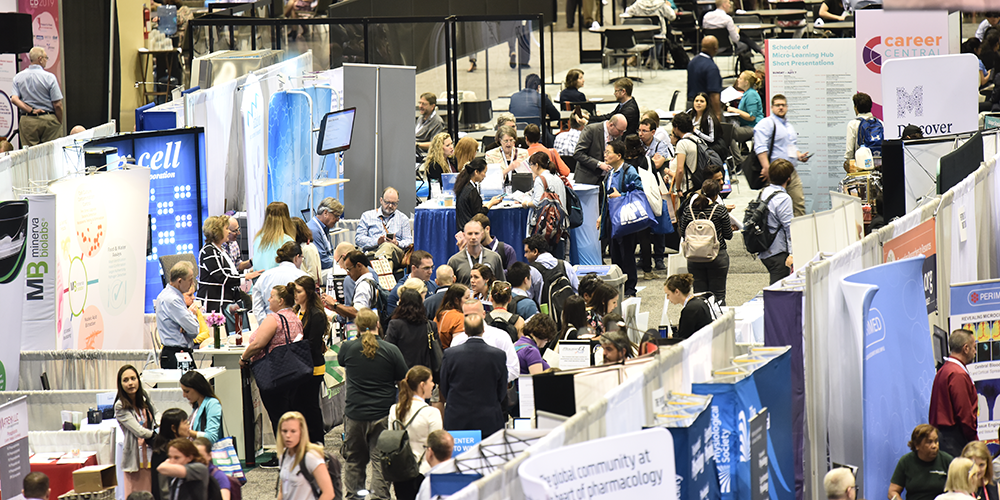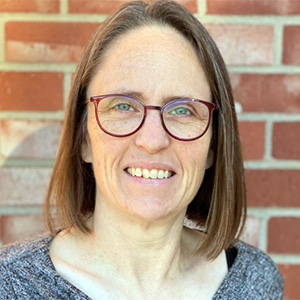Attending a conference
when you don’t have the budget
Attending the American Society for Biochemistry and Molecular Biology Annual Meeting or any professional conference can be rewarding but expensive. Here are a few ideas to manage costs, to help those professional development dollars go as far as possible. It might be too late to take some of these steps for the ASBMB meeting in San Diego this April, but keep them in mind for other meetings and for ASBMB 2021 in Indianapolis.

Registration and other meeting costs:
-
Register by the early-bird deadline. If you’re not a member of the host society, consider joining; the reduction in registration costs is often more than the cost of membership.
-
Volunteer. If you help to put on the conference, you might get a partial or full waiver of your conference fee and maybe some free meals.
-
Apply for travel awards from the host society. These often have early deadlines, so pay attention.
-
If you’re traveling with infants or children, ask about free childcare on site (slots are often first-come first-served, so plan ahead).
Lodging:
-
Pick a hotel a mile from the conference center that includes breakfast. The nightly rate will be less because of the distance, and you won’t have to pay for one meal each day.
-
Consider finding lodgings on Airbnb, VRBO or HomeAway. You might find a room or an apartment closer to the conference center than the conference hotel at the same price as a hotel a mile away. If you’re traveling with a group from your campus or company, several of you could share the space.
-
Have a roommate (or if you rent a house, multiple roommates) at the conference. Some conferences provide roommate matching services if you are attending alone.
-
Consider staying with a friend or relative who lives in the city.
-
Connect with people from other labs or institutions; attendees from multiple groups can stay together to reduce costs.
Meals:
-
Attend the opening ceremony. Often, it includes a buffet of some sort. It’s not gourmet food, but it’s not bad. Sometimes, there’s even free beer and wine.
-
Look for free food breaks. At many conferences, finger foods or snacks are served in the midmorning or midafternoon.
-
Stay somewhere with a refrigerator and microwave; stock up at a local grocery store, then carry your lunch. You can have fresh fruits, beverages and sandwiches for less than half of what you would pay at a restaurant. Remember to bring reusable utensils and a plate or bowl to make this option less frustrating.
-
Grocery stores often have hot buffets where you can get an inexpensive dinner plus a few meals to reheat in your room later if you have a microwave.
-
Pay attention to the vendors. Sometimes they host workshops that include meals.
-
Pay attention to workshops that are part of the meeting. If they start at noon, trays of sandwiches or fruit might be included.
-
Get out of the conference center for breakfast and/or lunch. Picking up coffee or a sandwich on your way to or from the meeting is often substantially less expensive than on-site food options. Walk a couple of blocks away to find cheaper restaurants with shorter wait times (lots of conference attendees will go to the place across the street).
-
If you stay at a hotel, ask about a concierge level for your stay. This might cost a bit more, but it often includes breakfast, snacks, beverages and evening hors d’oeuvres. So meal costs are almost zero.
-
Bring a refillable water bottle and hit the water fountain (both in the airport and at the convention center). Fill your own reusable coffee mug at the meeting coffee/tea breaks.
-
If you have dinner out with colleagues, don’t be shy about asking for a take-home bag for leftovers and avoiding pricey drinks. Politely ask for a separate check (use the excuse of institutional reimbursement rules) to avoid the dreaded “let’s split the bill.”
-
If you’ve brought children with you, look for restaurants with kids-eat-free options.
Airfare and transportation:
-
Purchase your plane ticket well in advance. This is especially advisable if you’re flying on Southwest Airlines. You also can use Google Flights to track ticket prices.
-
Bring good walking shoes and enjoy the chance to move while walking to the conference site.
-
Look for a hotel on a bus or trolley line or one with a free shuttle.
-
If you’ve been invited to speak at a nearby university, try to schedule the visit around the conference time to combine travel costs.
-
Research how to get from your home to the airport: catch a ride, use public transportation or find less expensive off-site airport parking.
-
Find out how to get from the airport to the hotel; public transportation or a hotel shuttle service will be the least expensive. Coordinate sharing taxi rides with others to reduce costs. Introduce yourself to people with poster tubes at the luggage carousel — they often are going to the same conference and can share ride costs.
If your funding is limited, these ideas should help make attending a conference more accessible. We hope this means we’ll meet you at a conference social or in the airport luggage claim area.
Note: The authors are all members of the BASIL Consortium at various points in our careers as educators and researchers. We are located on small and large campuses, public and private institutions, primarily undergraduate institutions as well as those with M.S. and Ph.D. programs.
Enjoy reading ASBMB Today?
Become a member to receive the print edition four times a year and the digital edition monthly.
Learn moreFeatured jobs
from the ASBMB career center
Get the latest from ASBMB Today
Enter your email address, and we’ll send you a weekly email with recent articles, interviews and more.
Latest in Careers
Careers highlights or most popular articles

Decoding how bacteria flip host’s molecular switches
Kim Orth will receive the Earl and Thressa Stadtman Distinguished Scientists Award at the ASBMB Annual Meeting, March 7–10, just outside of Washington, D.C.

Defining JNKs: Targets for drug discovery
Roger Davis will receive the Bert and Natalie Vallee Award in Biomedical Science at the ASBMB Annual Meeting, March 7–10, just outside of Washington, D.C.

Upcoming opportunities
No matter where you are in your career and what future path you aspire to, everyone needs leadership skills. Join ASBMB for practical strategies for building and practicing leadership skills.

Close out ASBMB 2026 with a bang
The closing reception of the 2026 ASBMB Annual Meeting will be held at the Torpedo Factory Art Center in Alexandra, Virginia.

Redefining lipid biology from droplets to ferroptosis
James Olzmann will receive the ASBMB Avanti Award in Lipids at the ASBMB Annual Meeting, March 7–10, just outside of Washington, D.C.

Creating change in biochemistry education
Pamela Mertz will receive the ASBMB William C. Rose Award for Exemplary Contributions to Education at the ASBMB Annual Meeting, March 7-10 in Washington, D.C.




